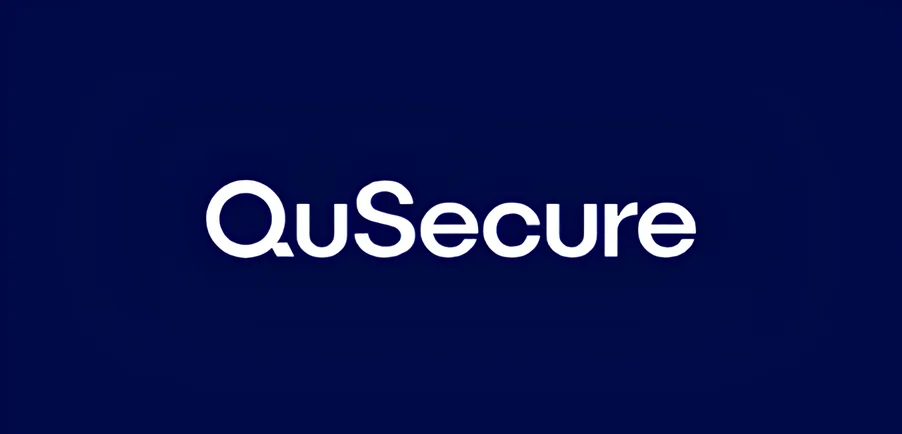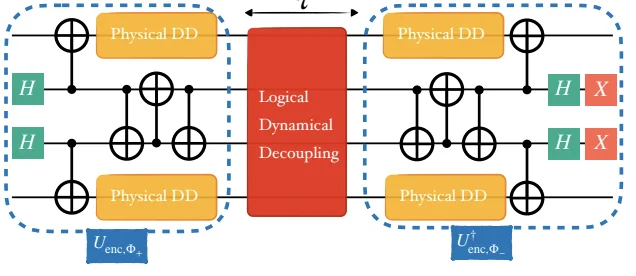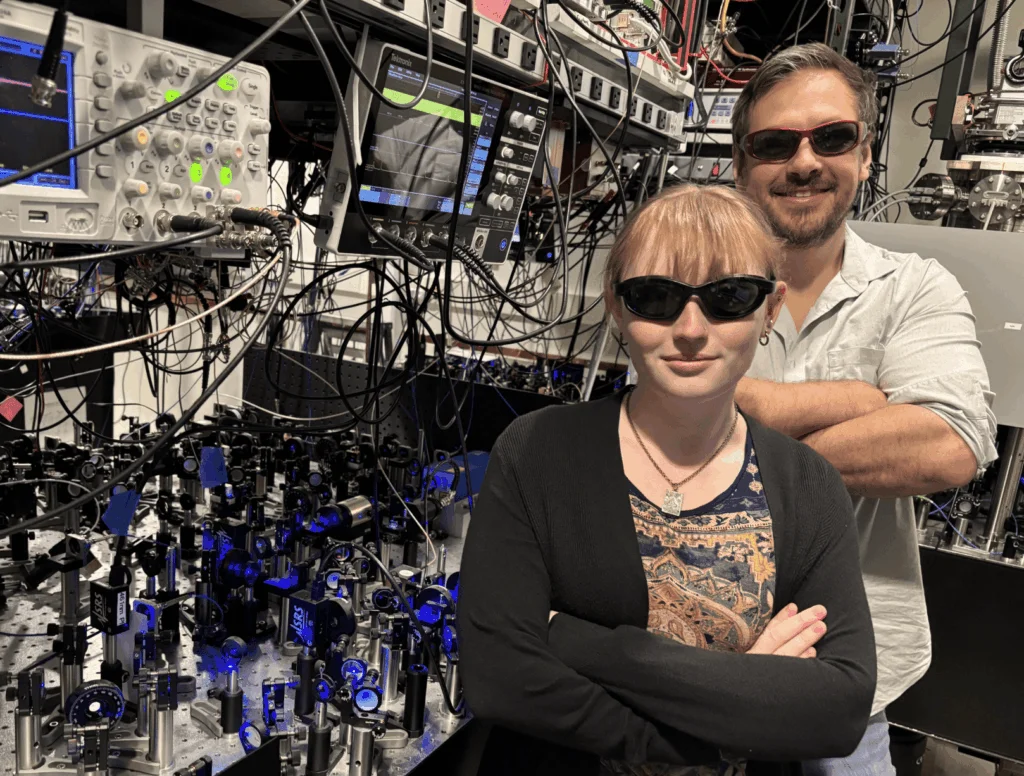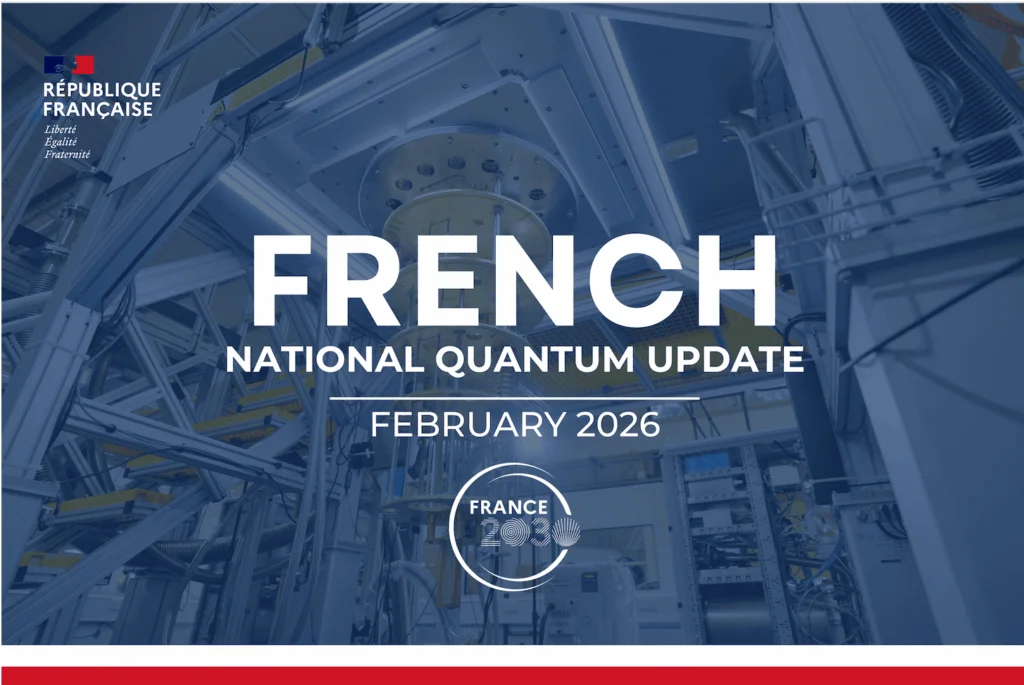
Continuing on from the last post on Scientific Advisors Shaping Quantum 2.0 For Industry, here’s Part 3 of the series, Advisors: 43–63
*All data correct as of late August 2021
43. Abraham Heifets: Advisor, ProteinQure
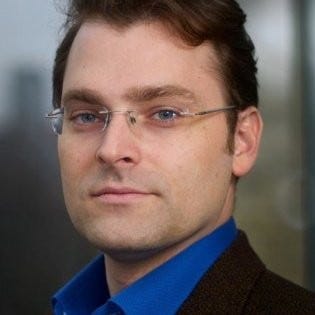
Abraham Heifets is the first of four advisors at the computational platform for protein drug discovery ProteinQure. Besides this, Heifets is the CEO and co-founder of Atomwise, a startup that uses AI to help discover new medicines.

Heifets has a Ph.D. in Computer Science from the University of Toronto.
44. Blaise Lippa: Advisor, ProteinQure
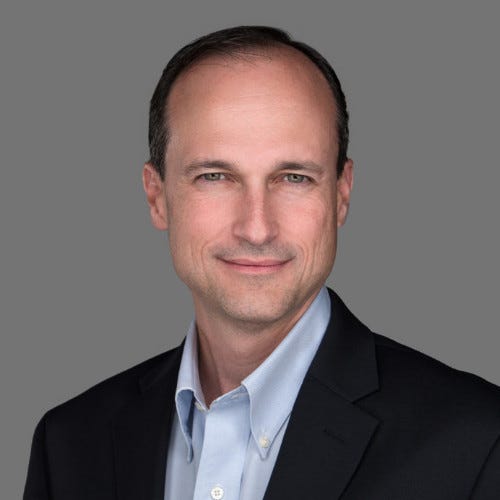
Blaise Lippa is a natural entrepreneur who has built a startup company from the very beginning to an entity with more than ninety employees with multiple assets and raised >$350M (equity + partnerships).
With a proven track record advancing molecules to clinical trials, including the approved drug Daurismo/ Glasdegib for leukemia, Lippa also has experience in multiple disease areas (oncology, immunology, pain, antibacterials, IBD, fibrosis), and target types (kinase, GPCR, ion channel, PPI, protease). A member of early and late-stage clinical development teams, he is a motivated and goal-oriented leader adept at working both in startups and large pharma environments with proven experience in enhancing team execution, crisp decision making, introducing innovative technologies, outsourcing, and developing junior staff as scientists and managers.
Lippa has a Ph.D. in Organic Chemistry from Stanford University.
45. Marcel Patek: Advisor, ProteinQure
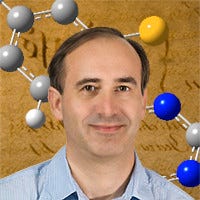
The third advisor at ProteinQure, Marcel Patek is the founder and director at Bright Rock Path, LLC who is an industry-skilled drug hunter with strong leadership skills. To boot, he possesses extensive experience in small molecule and peptide drug discovery across multiple therapeutic areas from target identification to clinical evaluation with specific skills that include medicinal chemistry, drug disposition (ADME), analytical chemistry, computational chemistry and structure-based drug design, combinatorial technologies, project management.
Patek has a strong track record of innovation and scientific contributions, including 17 issued patents and 33 publications.
Patek has a Ph.D. in Organic Chemistry from IOCB Prague — Institute of Organic Chemistry and Biochemistry of the Czech Academy of Sciences.
46. Philip Kim: Advisor, ProteinQure
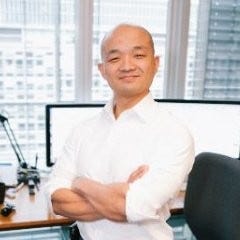
To go along with his duties as an Advisor at ProteinQure, Philip Kim is a Professor at the University of Toronto where he is leading a research laboratory of 15+ postdoctoral fellows, graduate students and research assistants whose research focuses on the discovery of novel therapeutic strategies, design of inhibitors and analysis of protein-protein interactions.
Kim has a Ph.D. in Computational Biology and AI from the Massachusetts Institute of Technology.
47. Mete Atature: Consultant, Q&I
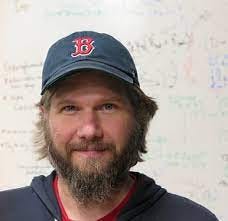
Mete Atature is the first of seven consultants working for quantum consultancy firm Q&I. A Co-Founder and CSO of Nu Quantum Cambridge, a UK-based telecommunications startup that develops end-to-end quantum cryptography systems, he is also a Professor at Cambridge University’s Department of Physics, The Cavendish Laboratory. Atature has expertise in solid-state quantum photonics technologies, spin and photon qubits, semiconductor and diamond quantum networks and sensors, and quantum devices with layered materials.
He has a Ph.D. in Physics from the Quantum Imaging Laboratory at Boston University.
48. Simon Benjamin: Consultant, Q&I
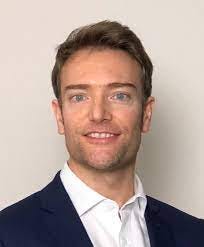
A Professor of Quantum Technologies at the University of Oxford, Simon Benjamin is a Consultant at Q&I. He has been appointed Deputy Director for Research for the new National Quantum Computing Centre, being the second phase of the UK’s ten-year £1-billion programme. The centre will place the UK at the forefront of quantum computing, bringing together academia, business and government to address key challenges such as the scalability of this transformative new technology.
Benjamin specializes in quantum computing, quantum networks, quantum ML, fault tolerance, simulating quantum computers, evaluating prospects for quantum speedup of given tasks.
He has a DPhil from Oxford University.
49. Dan Brown: Consultant, Q&I
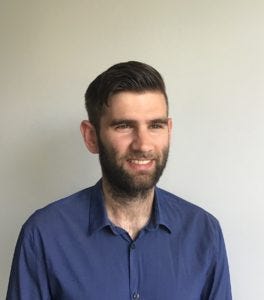
Dan Brown is the third Consultant offering his expertise in quantum computing, photonics, error correction, and fault-tolerant quantum technologies to Q&I. In the role since 2015, Brown is also a Professor of Physics and Director of the EPSRC Centre for Doctoral Training in Delivering Quantum Technologies, UCL.
Brown obtained his Ph.D. in Physics from UCL.
50. Peter Leek: Consultant, Q&I
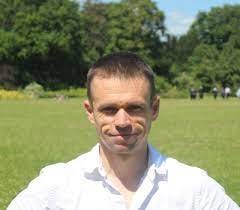
Besides being a Consultant at Q&I, Peter Leek is the Co-founder and the Director of Oxford Quantum Circuits, a spinoff startup from the University of Oxford developing quantum computing components based on superconducting circuits and a Principal Investigator at the Superconducting Quantum Devices Group, University of Oxford.
Leek is an expert in superconducting quantum circuit research and circuit and hybrid solid-state quantum computing.
He obtained his Ph.D. in Physics from the University of Cambridge.
51. Ashley Montanaro: Consultant, Q&I
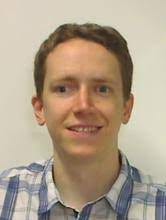
As well as being a Consultant at Q&I, Ashley Montanaro is the Co-founder of Phasecraft and a Professor of Quantum Computation at the University of Bristol, and a member of the Quantum Information Theory and Theory and Algorithms research groups.
An expert in quantum algorithms and computational complexity with over fifteen years working in the field, his main research interests are in the theory of quantum computing, particularly quantum algorithms and computational complexity, as well as quantum query and communication complexity.
Montanaro obtained his Ph.D. in Quantum Computing from the University of Bristol.
52. John Morton: Consultant, Q&I
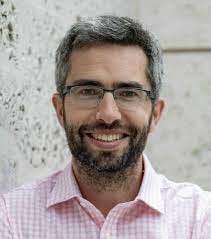
A Director and Co-Founder of British QC startup Phasecraft, a Professor of Nanoelectronics at UCL and Director of the UCL Quantum Science and Technology Institute, John Morton has 17 years of experience in quantum computing and in particular the demonstration and development of quantum bits, and strategies for qubit control and measurement.
Morton has a Ph.D. (D.Phil) from the University of Oxford in Quantum Computing and has been a Royal Society University Research Fellow.
53. Carlos Perez-Delgado: Consultant, Q&I
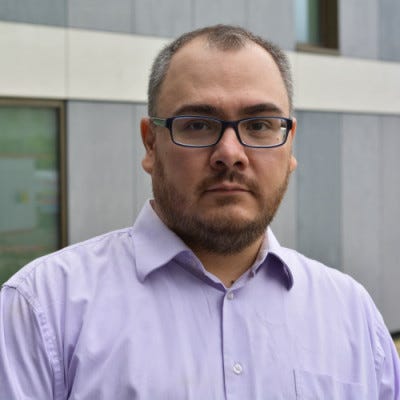
The seventh and final Consultant for Q&I listed, Carlos Perez-Delgado is a lecturer at the University of Kent where he conducts research in quantum and classical computation, as well as lectures on computing, security and privacy management.
An expert in quantum cybersecurity, quantum algorithms and quantum measurements, Perez-Delgado was also a Research Fellow at both the National University of Singapore and Singapore University of Technology and Design (SUTD) and a former member of the Institute for Quantum Computing (IQC) in Canada and the Centre for Quantum Technologies (CQT) in Singapore.
He has a Ph.D. in Computer Science from the University of Waterloo.
54. Christopher Ferrie: Quantum Education Advisor, Q-CTRL

A quantum theorist and children’s book author, Christopher Ferrie is a Quantum Education Advisor at Australian quantum startup Q-CTRL.
A Chancellor’s Research Fellow and ARC DECRA Fellow at the Centre for Quantum Software and Information, Ferrie is an Associate Professor at the University of Technology Sydney.
Most famous (probably) for his books series (Baby University) which includes the highly recommended Quantum Physics for Babies, Ferrie studied at the University of Waterloo, Ontario, Canada, where he earned a Ph.D. in Applied Mathematics on Theory and Applications of Probability in Quantum Mechanics.
55. James Whitfield: Co-founder, Scientific Advisor, qBraid; Advisor, Zapata Computing
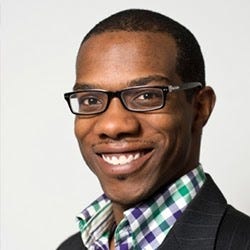
James Whitfield is a Scientific Advisor and Co-founder of startup qBraid, a platform for learning about and developing programs for quantum computers, and the first academic representing the BAME group so far.
A Professor of Physics at Dartmouth College and a pioneer in the application of quantum computing to quantum chemistry problems, Whitfield also serves on the scientific advisory board of Zapata Computing.
Whitfield received his Ph.D. in Chemical Physics from Harvard University.
56. Peter McMahon: Quantum Algorithms Research Advisor, QC Ware
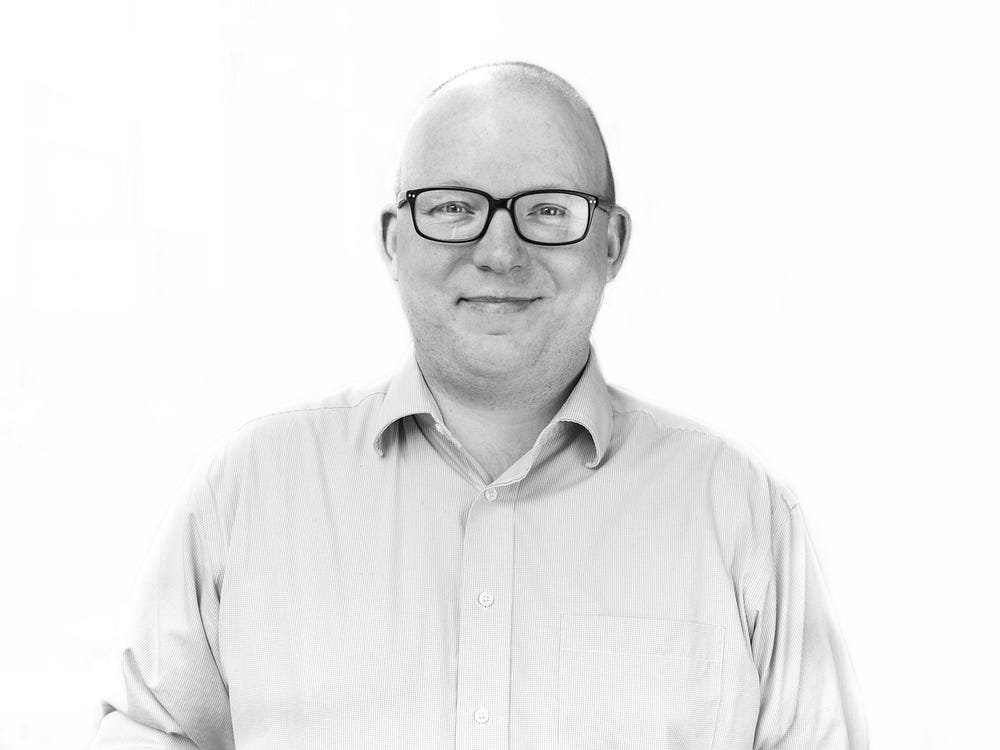
Peter McMahon is a Quantum Algorithms Research Advisor to the quantum algorithms team at Silicon Valley startup QC Ware, the first of three.
An assistant professor at Cornell University and Lead Investigator at The McMahon Lab, School of Applied and Engineering Physics at Cornell University, McMahon has been a CIFAR Azrieli Global Scholar in Quantum Information Science, won a Google Quantum Research Award and has had a Stanford Nano- and Quantum Science and Engineering Postdoctoral Fellowship, and Stanford Graduate Fellowship.
McMahon obtained his Ph.D. in Electrical Engineering from Stanford.
57. Scott Aaronson: Chief Scientific Advisor, QC Ware; Scientific Advisory Board, Quantum Machines
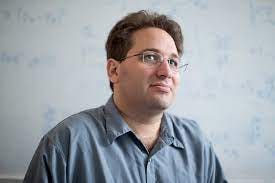
Those of you “in the know” about the quantum computing community will realize how important Scott Aaronson is to it. Besides combining his time as a Chief Scientific Advisor at QC Ware and on the Scientific Advisory Board at Israeli startup Quantum Machines, Aaronson is a Professor of Computer Science at The University of Texas at Austin.
An expert in quantum algorithms, his current research concerns how to demonstrate a quantum computing speedup with the technologies of the near future, and the largest possible quantum speedups over classical computing.
Like Ferrie, Aaronson is an author (Quantum Computing Since Democritus). He also writes for various online platforms, is a guest speaker of note, has his own blog (Shtetl-Optimized) and is a founder of the Complexity Zoo wiki, which catalogues all classes of computational complexity.
Aaronson received his Ph.D. from UC Berkeley.
58. Kay Giesecke: Advisor, QC Ware
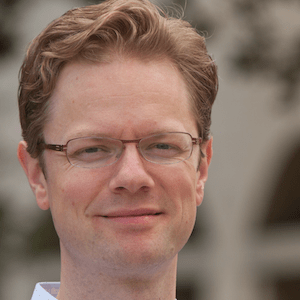
Kay Giesecke is a tenured professor at Stanford University’s School of Engineering (on leave), where his research and teaching are in the areas of financial and risk analytics. Giesecke is an Advisor at QC Ware on Application Development related to quantitative trading, financial risk management and asset pricing, and has been in the role since 2015.
As well as his academic work at Stanford, Giesecke is the founder and CEO at Infima Technologies and a Professor at the Stanford University School of Engineering and Founder and Director of Stanford’s Advanced Financial Technologies Laboratory.
He is an Editor of Management Science in the Finance Area and an Associate Editor for Mathematical Finance, Operations Research, SIAM Journal on Financial Mathematics, Finance and Stochastics, Mathematics and Financial Economics, Journal of Credit Risk, Journal of Risk, and others.
Giesecke obtained his Ph.D. in Economics from Humboldt University Berlin.
59. Madhusudan Atre: Chair Advisory Council, QpiAI
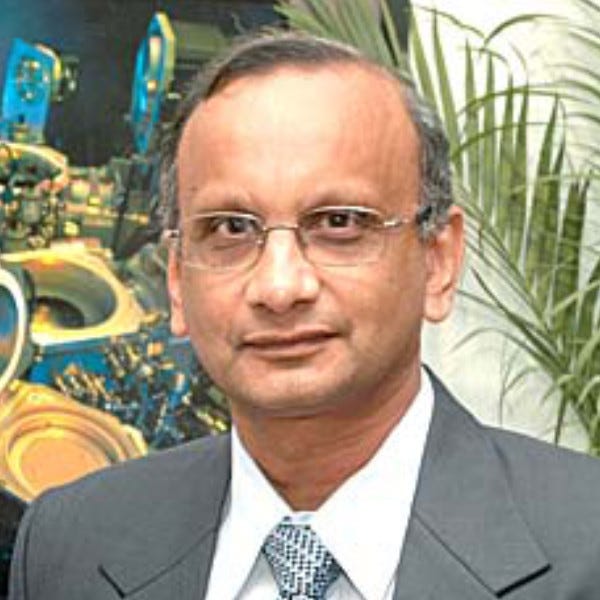
Madhusudan Atre is the first of four people who sit on the Advisory Council for QpiAI, an Indian startup whose PaaS (Platform as a Service) and QpiAITM ASGPTM (AI System Generating Processor) that will enable not only highest data to insight efficiency but generating new usable data.
With 30+ years of experience in leadership and management roles in semiconductor, solar and software R&D companies, Atre is founder, advisor and mentor to startups with technological expertise in VLSI, software, parallel computers, physics, and mathematics, as well as being a Visiting Scientist at the Indian Institute of Science’s Nanotechnology Incubator.
Atre received his Ph.D. in Theoretical Physics from the Indian Institute of Science, Bangalore.
60. Navakanta Bhat: Advisor CMOS Quantum Fabrication, QpiAI
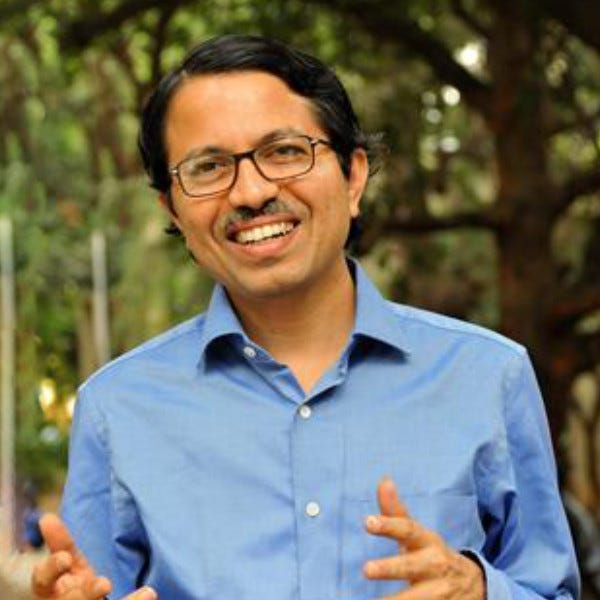
Advisor on CMOS Quantum Fabrication at QpiAI, Navakanta Bhat is a Professor at the Indian Institute of Science, Bangalore where he leads the Nano Devices and Sensors Lab.
Bhat’s research interests are in the fields of nanoelectronics device physics and technology, electrochemical biosensors, metal oxide gas sensors, novel materials and processes for CMOS, and MEMS applications. He has nearly a dozen patents and over that in scientific publications.
He obtained his Ph.D. in Physics from Stanford University.
61. Ujjwal Sen: Advisor Quantum Computing and Information Science, QpiAI
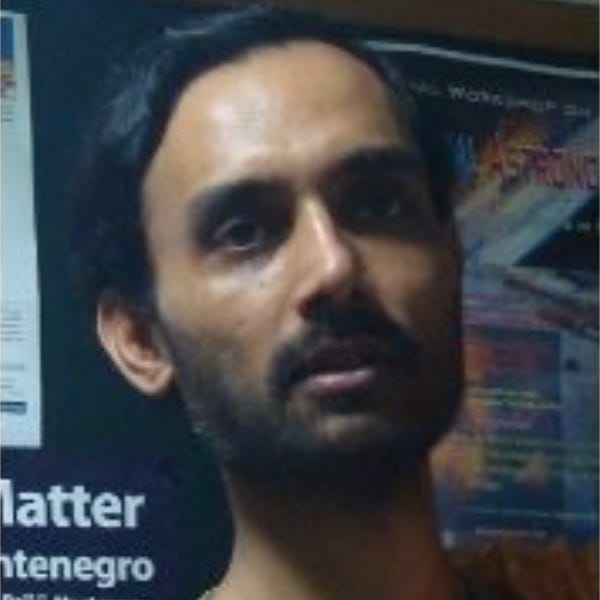
Deeply involved with Quantum Computing and Information Science work at QpiAI, Ujjwal Sen is a Professor of Physics at the Harish-Chandra Research Institute at the Harish-Chandra Research Institute (HRI), Allahabad.
Sen’s focus is on quantum computation and quantum information, condensed matter physics, and ultra-cold gases.
He has a Ph.D. in Physics from the University of Gdansk.
62. S. A. Shivashankar: Material and superconductivity Advisor, QpiAI
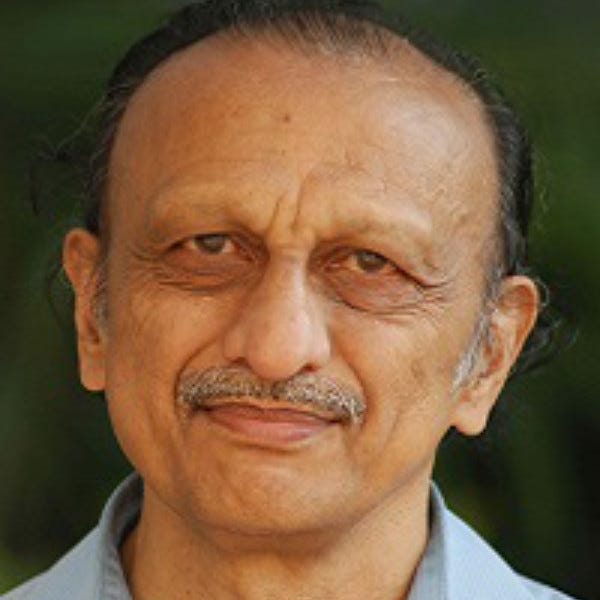
S.A Shivashankar is the final advisor for QpiAI. Like his colleagues at the Bangalore-based startup, Shivashankar is an academic by profession. As a Visiting Professor at the Indian Institute of Science’s Nanotechnology Incubator, his research interests lie in the chemical synthesis of nanomaterials, nanostructured thin films by vapour and solution-based methods: CVD, ALD, Pyrolysis, sol-gel, as well as the development of chemical precursors and exploring the applications of these materials.
Shivashankar gained his Ph.D. in Chemical Physics from Purdue University.
63. Garnet Chan: Chief Scientific Advisor and Co-founder, QSimulate
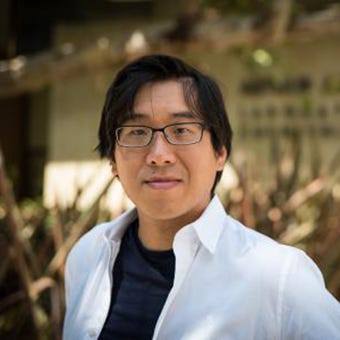
Garnet Chan is a Chief Scientific Advisor and Co-founder of quantum mechanical simulation startup QSimulate.
Besides his work at QSimulate, Chan is a Bren Professor of Chemistry at Caltech. Here, his research work focuses on the interface of theoretical chemistry, condensed matter physics, and quantum information theory, and is concerned with quantum many-particle phenomena and the numerical methods to simulate them, with the aim to understand physical systems at the boundaries of accessible computational complexity, and to devise new physical simulation methods to push these boundaries forward.
Over the last decade, Chan’s group has contributed to and invented a variety of methods addressing different aspects of quantum simulations, ranging from the challenges of strong electron correlation to treating many-particle problems in the condensed phase, to dynamical simulations of spectra and coupling between electron and nuclear degrees of freedom. Some of these methods include density matrix renormalization and tensor network algorithms for real materials, canonical transformation-based down-foldings, local quantum chemistry methods, quantum embeddings including dynamical mean-field theory and density matrix embedding theory, and new quantum Monte Carlo algorithms. The primary focus is on methodologies for problems that appear naively exponentially hard, but where an understanding of inherent physics, for example in terms of the entanglement structure, allows for calculations of polynomial cost.
Chan obtained his Ph.D. from the University of Cambridge.
Part Four coming soon!
The Quantum Insider (TQI)

Just in case this list hasn’t satisfied your cravings for data on scientific advisors in the quantum space, you can pop on over to The Quantum Insider (TQI), TQD’s very own data platform. Here you can find deep and insightful information on all aspects of the QIS industry.
TQI is an invaluable resource for journalists, researchers, investors, companies, and government agencies looking to extend their knowledge of the growing quantum tech ecosystem!
Deep Tech Insider (DTI)

Interested in other niches of deep tech? Good, TQD team has that covered, too: Check out the Deep Tech Insider, the best place for news on all that is happening in the world of deep tech.
If you found this article to be informative, you can explore more current quantum news here, exclusives, interviews, and podcasts.










